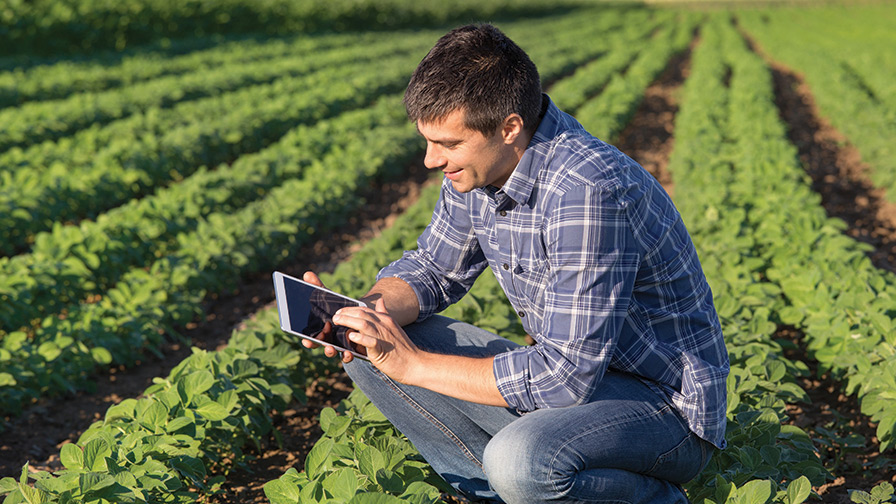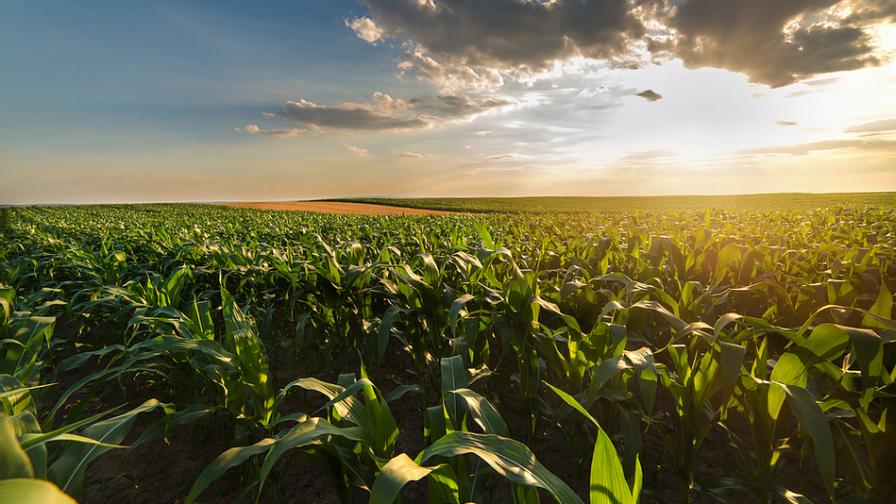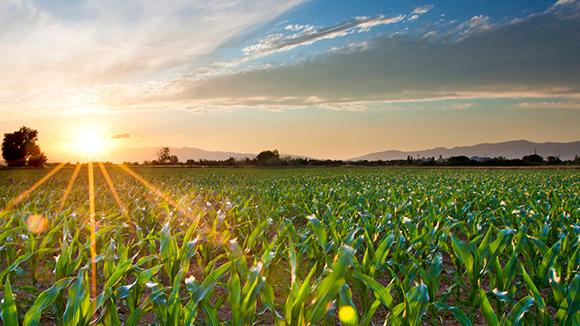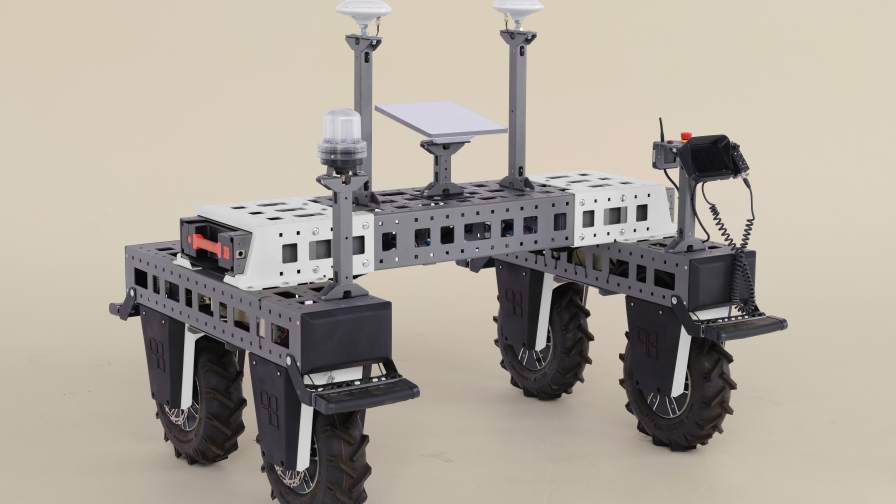Enhancing Farming Practices: The Role of AI in Agriculture
The integration of artificial intelligence (AI) into agriculture has significantly changed traditional farming practices.
No longer do farmers rely solely on intuition and experience; today, they wield the power of AI to make informed, data-driven decisions, optimizing resources and mitigating risks along the way.
This transformative shift has not only increased efficiency but also holds the promise of addressing pressing challenges faced by the agriculture industry.
AI in Agriculture market was valued at USD 681.7 million in 2022 and is anticipated to reach USD 1695.5 million by 2029, witnessing a CAGR of 16.4% during the forecast period 2023-2029.
Another report by Market.us corroborates this trend, indicating a similar trajectory for the AI in Agriculture market. The global agricultural artificial intelligence market size was expected to be worth around USD 10.2 billion by 2032 from USD 1.2 billion in 2022, growing at a CAGR of 24.5% during the forecast period from 2022 to 2032.
This staggering growth underscores the increasing adoption of AI technologies in agriculture worldwide, highlighting its significance in shaping the future of farming.
In this article, we’ll explore the transformative impact of AI on agriculture, highlighting its importance, benefits, challenges, and solutions.
Importance of Integrating AI in Farming Practices
Agriculture, which is the oldest profession known to man, is unique in the sense that it has witnessed many transitions and changes owing to the technological advancements enjoyed by the invention of agricultural artificial intelligence.
With the integration of AI into farming practices, their usefulness is essentially increasing as the world faces challenges like population growth and climate change.
The Impact and Benefits of AI in Agriculture
AI’s involvement in agriculture has yielded profound benefits, transforming the way farmers manage their operations and enhancing overall productivity, contributing to the digital transformation in agriculture.
Here’s how AI has made a significant impact in agriculture:
Enhancing Decision-Making Processes
Artificial Intelligence provides farmers with data-driven insights which enable them to make better decisions on which crops to grow and when to irrigate plants and how to control pests.
Farmers can achieve greater yields on the same amount of land, without using additional fertilizers.
Moreover, Multimodal AI improves agriculture by combining several types of data, enabling farmers to receive advice on what to plant, when to plant it, when to fertilize, when to harvest.
AI can analyze huge amounts of data and offer actionable recommendations which enable optimal services of farming and increased production without increasing wastage.
Increased Efficiency and Productivity
AI technologies can be overwhelmingly advantageous in the whole farming sector, especially when it comes to automation and predicting deficiencies, eventually saving labor power, the energy resources, and even taking care of the environment.
AI-based technologies bring many advantages through machine learning skills. For instance, these technologies encompass driverless vehicles, robotic systems, and drones for agriculture.
These advancements provide a way to make the production process more efficient which gives rise to greater yields and less production costs.
Crop Monitoring and Disease Detection
Artificial intelligence-based sensors and image devices reveal plant health conditions at a very high level of accuracy in real time and help to detect specific causes of plant diseases, nutrient inadequacies and pest infestations.
Crop management software solutions are the tools in identification of the threats in time, thus allowing to implement the actions aimed at preventing a total loss of the crops, which is also a source of high-quality yields.
Precision Farming and Resource Optimization
AI improves the accuracy of agricultural production techniques through analysis of environmental data, soil conditions, and crop characteristics for the allocation of agricultural resources.
Delivering precise irrigation, fertilization, and pesticide applications customized to specific crop needs, AI maximizes resource efficiency while minimizing environmental impact.
Challenges and Solutions in Agriculture
As agriculture grapples with various challenges, AI offers innovative solutions to address them effectively.
The Challenge of Physical Space
There is a lack of usable arable land for farming; therefore, farmers must increase productivity within the limited space.
AI-driven solutions bring about a smart farming solution where farmers can make the best of precision agriculture technology, thus increasing the yield potential and reducing the land footprint.
The Challenge of Finite Resources
Scarce resources like water, energy, and fertilizer are amongst the most critical factors to a sustainable agriculture.
AI makes resource optimization by adopting accurate input management, decreasing waste and improving resource use efficiency. This guarantees sustainability of agricultural activities in the long-run.
The Challenge of Environmental Impact
Agricultural activities in the modern world lead to environmental problems because of deforestation, and soil/water pollution.
AI provides environmental friendly solutions due to the fact that it enhances regenerative agriculture systems, minimizes environmental footprints and addresses climate change.
Solutions
Data-Driven Decision-Making and Predictive Analytics
The use of AI technology for the study of data and predictive modeling towards farming provides the farmers with real-time observations in order to make decisions based on the analysis.
Predictive analytics tools forecast weather patterns, market trends, and crop performance, facilitating proactive risk management and strategic planning.
Precision Farming: A Powerful Farm Management Strategy
Precision farming techniques utilizes AI-driven technologies to optimize resource use and maximize crop productivity.
Integrating data from sensors, drones, and satellite imagery, farmers can implement site-specific management practices, ensuring optimal growing conditions and higher yields.
Predictive Analytics: A Method to Improve Crop Yield
AI-driven predictive analytics models forecast crop yields based on historical data, environmental factors, and agronomic practices.
Accurately predicting future harvests enables farmers to optimize planting schedules, manage inventory levels, and mitigate supply chain risks, ensuring consistent and reliable crop production.
What Do Stats Say About the Impact of AI in Agriculture?
As per recent studies, the AI agricultural market is estimated to rapidly grow in the near future.
Here are the details:
- Market Growth: Report indicates that the AI in Agriculture market was worth USD 681.7 million in 2022 and this value is slated to surge to USD 1695.5 million by 2029 at a CAGR of around 16.4% between 2023 to 2029.
- Precision Farming Market: The worldwide market of Precision Agriculture measured 5.49 billion US dollars in 2021 and is expected to grow to 19.24 billion by 2030 with a CAGR of 14.95% from 2022 to 2030.
- AI Investment: In 2021, AI startups in agriculture received $1.54 billion in funding into artificial-intelligence agriculture companies, indicating a significant increase in investment compared to previous years.
Increasing adoption of AI technologies across the agricultural value chain is driving this growth.
With AI-enabled solutions transforming farming practices worldwide, the agricultural sector is poised for unprecedented growth and innovation.
AI in Agriculture: Conclusion
The involvement of AI in agriculture is a big step forward in the process of shaping farming. Thanks to AI-driven technologies, farmers can overcome the deficit in human labor, maximize resource use, and improve their productivity, all while reducing the environmental impact.
Given that AI is progressing ever further, the future of farming seems to be quite hopeful, as there will be increases in efficiency, durability, and profitability of farmers worldwide.
With AI in farming the future includes more developments of AI technologies, wider use of precision farming practices, and the appearance of AI solutions for dealing with the new problems in agriculture.
Amidst the digital transformation in agriculture, AI will play an increasingly critical role in shaping the future of food production and ensuring global food security.










